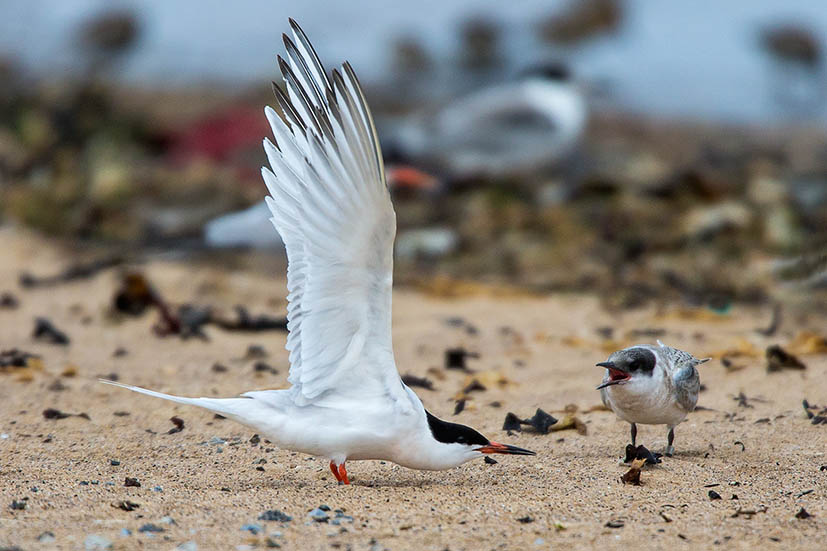New research has revealed that, for over 20 years, the growth of the Coquet Island Roseate Tern population has been supported by birds moving from Rockabill, Co Dublin.
Authors of a new paper published in the Journal of Animal Ecology found that the Rockabill colony, where 1,633 pairs of Roseate Terns nested this year, is the only site in Britain and Ireland which is essentially exporting birds to other colonies. As a result, it's hoped that the increasing populations at Coquet Island, Northumberland, and also at Lady's Island Lake, Co Wexford, will lead to new colonies being formed elsewhere.
The new research, co-funded by the EU LIFE Programme, RSPB and Natural England, shows that, between 1992 and 2016, the Coquet Island colony attracted more young birds to nest there than it was producing. In 2018, record numbers of Roseate Terns nested there. It is hoped that an increasing and thriving colony at Coquet Island will eventually lead to Roseate Terns settling at new sites, or recolonising areas in which they formerly bred. Since the research was carried out, it appears that the Coquet Island Roseate Terns are now beginning to sustain their own numbers and, in 2016, 50 per cent of terns nesting on the island had been hatched there. This year that figure climbed to 60 per cent.
Co-author Dr Mark Bolton, from the RSPB's Centre for Conservation Science, said: "Our research highlights the complex decisions conservationists face when deciding how to improve the fortunes of seabirds like Roseate Terns. Despite the reliance of the Coquet Island colony on immigration from Rockabill, this nature reserve has played an important role in maintaining the species in the UK, thanks to management by the RSPB including building nest boxes and protecting the colony.
"Having an additional nesting colony, the UK and Irish population as a whole is better protected against catastrophes like severe weather events, disturbance or disease that might hit any one colony."
The RSPB's Daniel Piec, who manages the EU Roseate Tern LIFE project, added: "With birds moving between colonies across borders, international co-operation is vital to their conservation. We're working across Britain, Ireland and France with BirdWatch Ireland, National Parks and Wildlife Service, North Wales Wildlife Trust, Bretagne Vivante and other partners which means we are learning a great deal about what the terns need, and the areas they use."
Co-author Dr Richard Caldow, from Natural England, commented: "We now know that where coastal colonies of other tern species, such as Common Terns, are doing well and feeding predominantly in the marine environment, there is probably enough food and safe nesting areas for Roseate Terns to thrive there too. The next step is to look for such potential nesting sites and consider 'Coquet-style management' to give Roseate Terns a helping hand to colonise them."

No comments:
Post a Comment